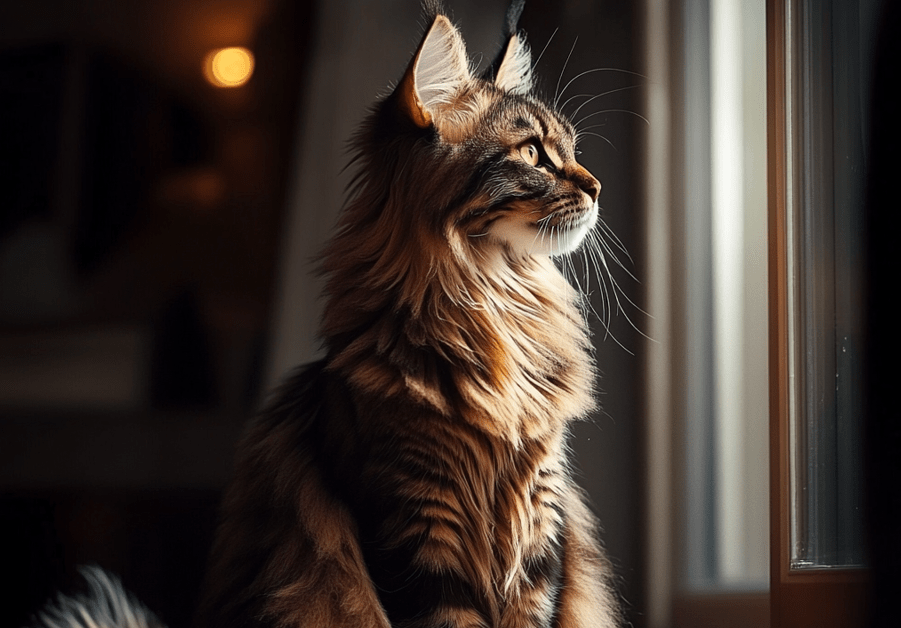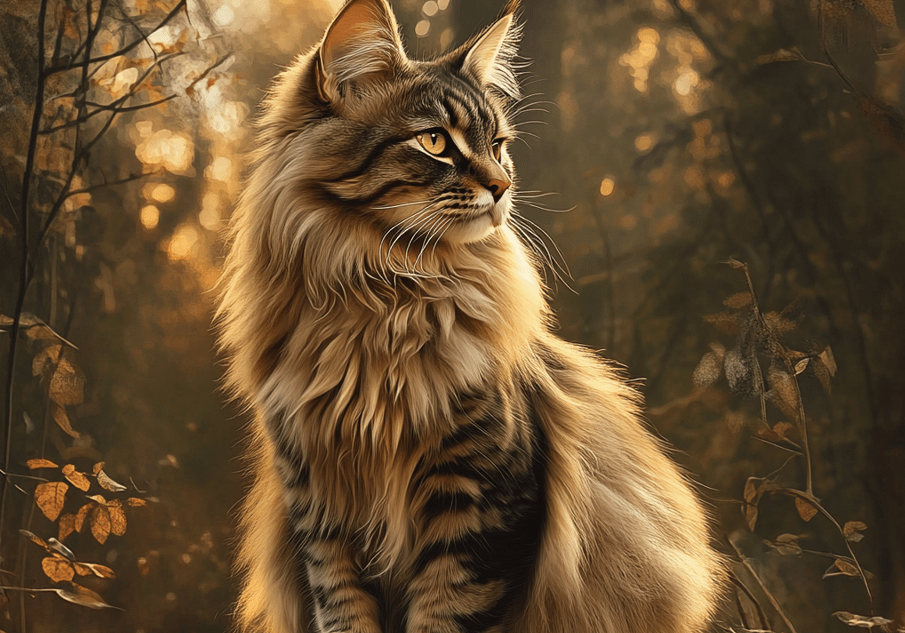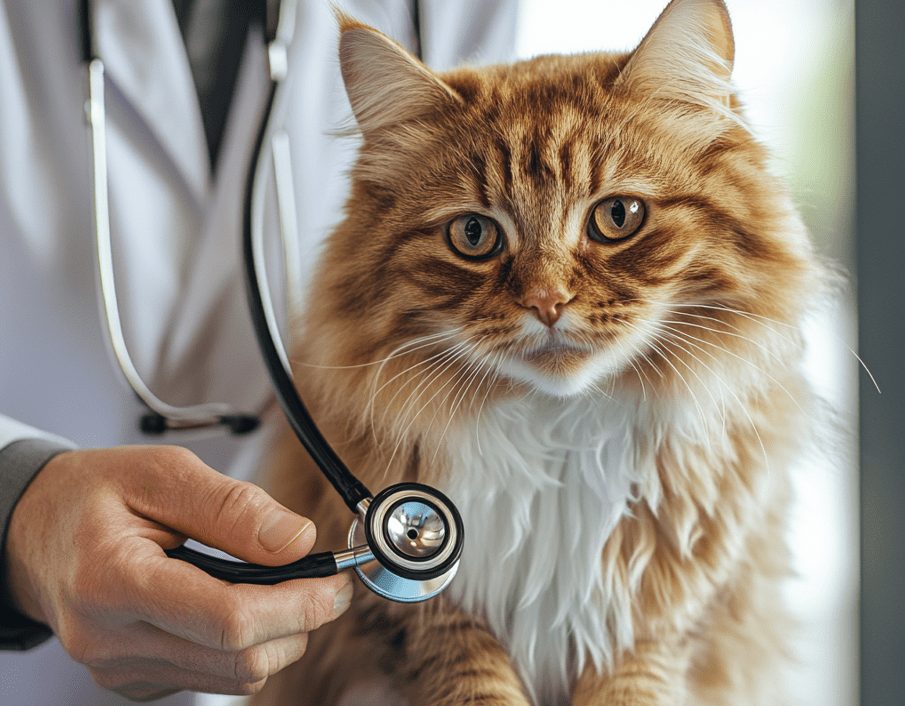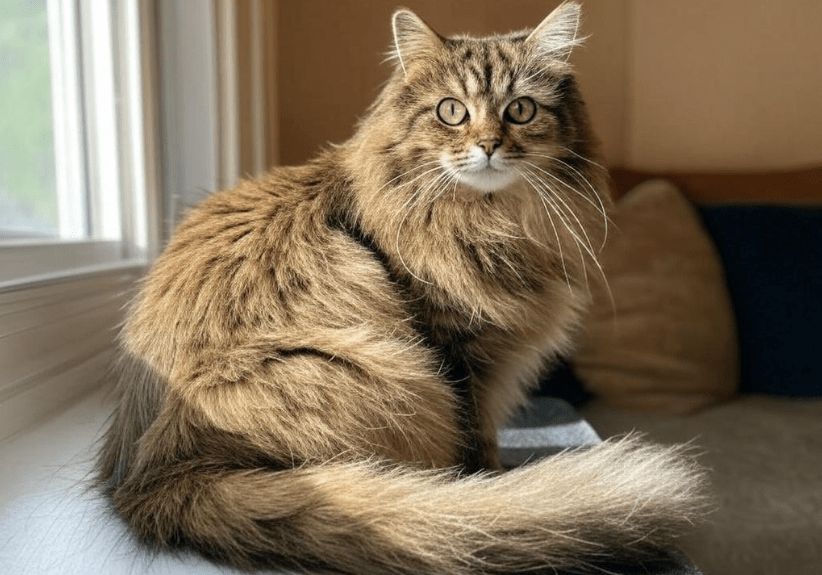
Maine Coon cats, known for their large size, tufted ears, and friendly personalities, are a beloved breed among cat owners. However, their substantial build and active nature can make them prone to Maine Coon joint pain, particularly as they age. Recognizing the signs, understanding the causes, and exploring relief options are crucial for ensuring your Maine Coon’s comfort and quality of life. In this comprehensive guide, we’ll delve into everything you need to know about joint pain in Maine Coons, offering practical advice and expert insights to help your feline friend thrive.
Why Maine Coons Are Prone to Joint Pain
Maine Coons are one of the largest domestic cat breeds, often weighing 10–25 pounds or more, with males typically larger than females. Their size, combined with their playful and athletic nature, puts extra stress on their joints over time. Several factors contribute to their susceptibility to joint issues:
Large Bone Structure: Their robust skeleton supports significant weight, increasing wear on joints.
Active Lifestyle: Maine Coons love to jump, climb, and play, which can strain joints, especially if they’re overweight.
Genetic Predispositions: Certain hereditary conditions, like hip dysplasia, are more common in Maine Coons.
Aging: As Maine Coons age, cartilage naturally wears down, leading to conditions like osteoarthritis.
Understanding these factors helps owners take proactive steps to prevent or manage joint pain effectively.
Signs of Joint Pain in Maine Coons
Recognizing joint pain early is critical for timely intervention. Maine Coons are stoic and may hide discomfort, so owners must be vigilant for subtle signs. Common symptoms include:
1. Reduced Mobility
-
Difficulty jumping onto furniture or cat trees
-
Hesitation or slow movements when climbing stairs
-
Limping or favoring one leg after activity
2. Behavioral Changes
-
Reluctance to play or engage in usual activities
-
Increased irritability or aggression when touched
-
Spending more time lying down or hiding
3. Physical Indicators
-
Stiffness or difficulty standing after resting
-
Swollen or warm joints (indicating inflammation)
-
Visible muscle loss around affected joints
4. Grooming Difficulties
-
Neglecting hard-to-reach areas due to pain when stretching
-
Overgrooming specific joints, leading to fur loss or skin irritation
5. Vocalization
-
Meowing or growling when moving or being handled
-
Increased vocalization during activity, signaling discomfort
If you notice any of these signs, consult a veterinarian promptly for a thorough evaluation, as early diagnosis can prevent further joint damage.
Common Causes of Joint Pain in Maine Coons
Joint pain in Maine Coons can stem from various causes, ranging from genetic conditions to lifestyle factors. Below are the most common culprits:
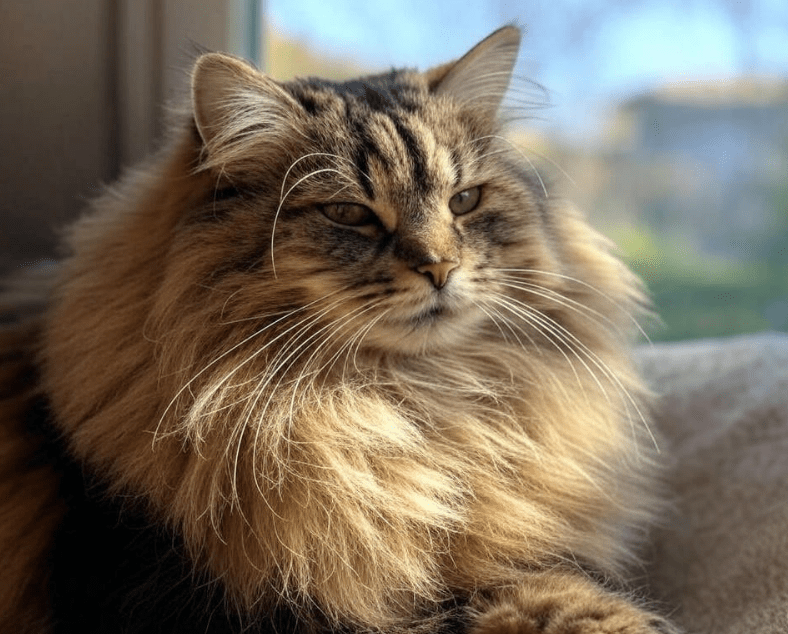
1. Osteoarthritis
Osteoarthritis, or degenerative joint disease, is the leading cause of joint pain in older Maine Coons. It occurs when cartilage in the joints wears down, causing bones to rub together, leading to pain and inflammation.
Risk Factors: Aging, obesity, and repetitive stress from jumping.
Symptoms: Stiffness, reduced mobility, and swollen joints.
2. Hip Dysplasia
Hip dysplasia is a hereditary condition where the hip joint doesn’t form properly, leading to instability and eventual arthritis. Maine Coons are genetically predisposed to this condition.
Symptoms: Limping, difficulty standing, and reluctance to jump.
Diagnosis: X-rays and veterinary examination.
3. Patellar Luxation
This condition involves the kneecap slipping out of place, causing pain and lameness. It’s less common but can affect Maine Coons, especially if they’re overweight.
Symptoms: Intermittent limping or “skipping” while walking.
Treatment: Weight management or surgery in severe cases.
4. Injuries or Trauma
Sprains, fractures, or ligament tears from falls or rough play can damage joints, leading to chronic pain if untreated.
Symptoms: Sudden lameness, swelling, or sensitivity in a specific area.
Risk: Common in active, young Maine Coons.
5. Obesity
Excess weight puts significant strain on joints, accelerating cartilage wear and exacerbating conditions like arthritis or hip dysplasia.
Symptoms: Difficulty moving, lethargy, and visible weight gain.
Prevention: Controlled diet and regular exercise.
6. Infections or Inflammation
Bacterial or viral infections (e.g., septic arthritis) or autoimmune conditions can cause joint inflammation and pain, though these are rare.
Symptoms: Fever, swollen joints, and severe lameness.
Diagnosis: Blood tests and joint fluid analysis.
Diagnosing Joint Pain in Maine Coons
If you suspect joint pain, a veterinarian will perform a comprehensive evaluation, which may include:
Physical Exam: Assessing gait, joint range of motion, and pain response.
X-Rays: Visualizing joint structure, cartilage loss, or bone abnormalities.
Blood Tests: Ruling out infections or systemic diseases.
Joint Fluid Analysis: Checking for inflammation or infection in severe cases.
Ultrasound or MRI: Used for complex cases to evaluate soft tissue damage.
Work with a vet experienced in large-breed cats, as Maine Coons have unique anatomical considerations. Early diagnosis ensures better outcomes and prevents further joint deterioration.
Relief Options for Maine Coon Joint Pain
Managing joint pain in Maine Coons involves a multi-faceted approach, combining medical treatments, lifestyle changes, and supportive care. Always consult a veterinarian before starting any treatment plan.
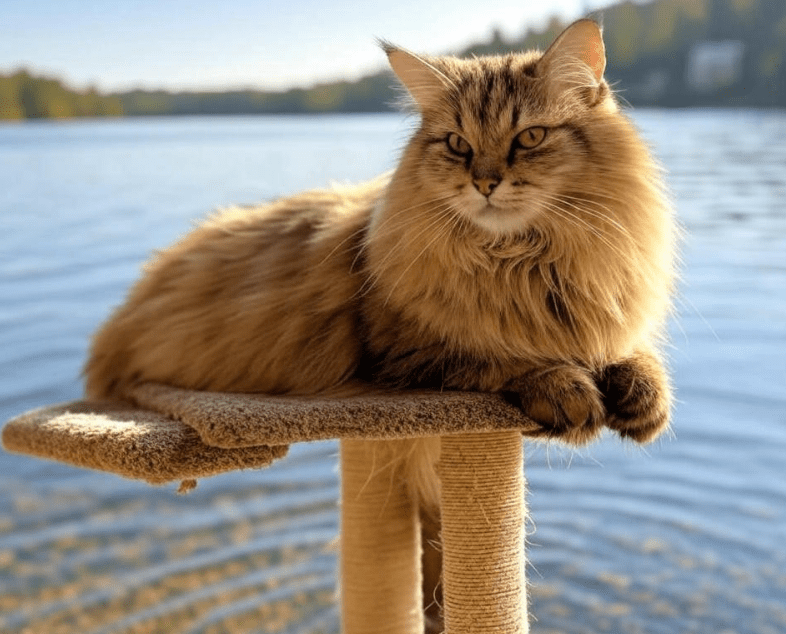
1. Veterinary Treatments
Pain Medications
Non-Steroidal Anti-Inflammatory Drugs (NSAIDs): Drugs like meloxicam reduce pain and inflammation. Administer only under vet supervision due to potential side effects (e.g., kidney or liver issues).
Opioids: Used for severe pain in advanced cases, typically short-term.
Gabapentin: Helps manage chronic pain and improves comfort.
Joint Supplements
Glucosamine and Chondroitin: Support cartilage repair and reduce inflammation. Available in treats, powders, or capsules.
Omega-3 Fatty Acids: Found in fish oil, these reduce joint inflammation and improve mobility.
MSM (Methylsulfonylmethane): May help reduce pain and support joint health.
Injections
Adequan: A polysulfated glycosaminoglycan injected to slow cartilage breakdown and improve joint lubrication.
Corticosteroids: Used sparingly for severe inflammation but avoided long-term due to side effects.
Surgery
Hip Dysplasia: Femoral head ostectomy (FHO) or total hip replacement in severe cases.
Patellar Luxation: Surgical correction for persistent dislocations.
Injury Repair: Surgery to repair torn ligaments or fractures.
2. Weight Management
Maintaining a healthy weight is critical for reducing joint stress. Steps include:
Veterinary Diet: Feed a calorie-controlled, high-protein diet formulated for weight loss or maintenance.
Portion Control: Measure meals to prevent overfeeding, especially for indoor Maine Coons.
Exercise: Encourage low-impact activities like feather wand play or short walks with a harness.
3. Physical Therapy and Exercise
Low-impact exercise strengthens muscles around joints, improving stability and mobility:
Range-of-Motion Exercises: Gently flex and extend your Maine Coon’s limbs under vet guidance.
Swimming: If feasible, hydrotherapy reduces joint stress while building muscle.
Interactive Play: Use toys like laser pointers to encourage movement without jumping.
4. Environmental Modifications
Make your home joint-friendly to reduce strain:
Ramps or Steps: Install pet ramps to help your Maine Coon access beds or cat trees without jumping.
Soft Bedding: Provide orthopedic pet beds to cushion joints during rest.
Litter Box Accessibility: Use low-entry litter boxes to accommodate mobility issues.
Non-Slip Surfaces: Add rugs or mats to slippery floors to prevent falls.
5. Alternative Therapies
Complementary treatments can enhance relief when used alongside veterinary care:
Acupuncture: Stimulates nerves to reduce pain and improve mobility. Seek a certified veterinary acupuncturist.
Laser Therapy: Low-level laser therapy reduces inflammation and promotes healing in affected joints.
Massage: Gentle massage improves circulation and relaxes muscles around joints. Learn proper techniques from a vet.
6. Homeopathic and Herbal Remedies
Some owners explore natural remedies, but evidence is limited, and safety varies:
Turmeric: May reduce inflammation but requires vet approval due to potential interactions.
CBD Oil: Anecdotally used for pain relief, but consult a vet for safe, pet-specific products.
Always discuss alternative treatments with your veterinarian to ensure they’re safe and effective for your Maine Coon.
Preventing Joint Pain in Maine Coons
While some joint issues are genetic or age-related, proactive measures can reduce the risk or delay onset:
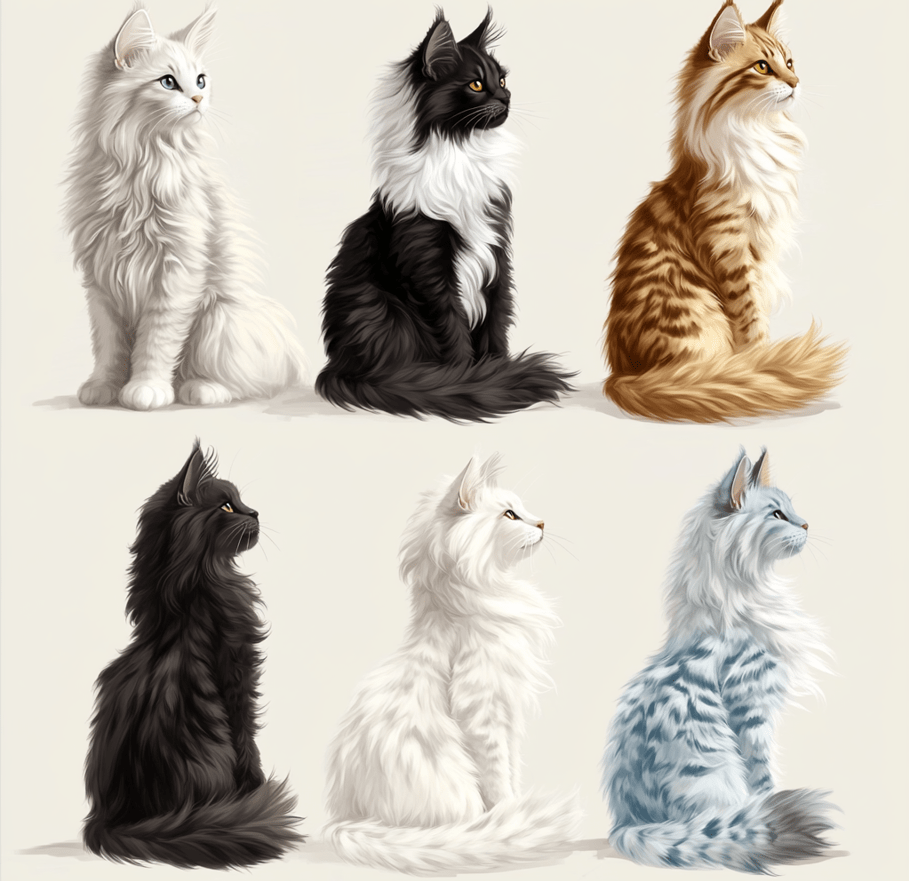
1. Maintain a Healthy Weight
-
Monitor your Maine Coon’s body condition score (BCS) with your vet.
-
Avoid free-feeding; use measured portions and limit treats.
2. Provide Joint Supplements Early
-
Start glucosamine or omega-3 supplements in young adulthood (around 2–3 years) to support joint health, especially for Maine Coons with a family history of joint issues.
3. Encourage Safe Exercise
-
Promote low-impact play to build muscle without stressing joints.
-
Avoid encouraging high jumps, especially for kittens or overweight cats.
4. Regular Veterinary Checkups
-
Schedule annual exams to catch early signs of joint issues, particularly for Maine Coons over 7 years old.
-
Screen for hip dysplasia in kittens from breeders with a history of the condition.
5. Choose Reputable Breeders
-
Select a breeder who tests for genetic conditions like hip dysplasia to reduce the risk of inherited joint problems.
Special Considerations for Maine Coons
Joint pain management varies based on your Maine Coon’s age, lifestyle, and health status:
Kittens: Monitor for signs of hip dysplasia or patellar luxation, as early detection allows for better management. Avoid overexertion during growth phases.
Adult Maine Coons: Focus on weight control and regular exercise to prevent joint strain. Start supplements early if at risk.
Senior Maine Coons: Prioritize comfort with soft bedding, ramps, and frequent vet checks. Adjust treatments as arthritis progresses.
Overweight Maine Coons: Weight loss is the priority, as excess pounds significantly worsen joint pain.
Show Cats: Maintain mobility for agility and appearance with supplements and low-impact exercise.
Common Mistakes to Avoid
To ensure effective management of joint pain, avoid these pitfalls:
Ignoring Early Signs: Delaying vet visits can worsen joint damage and complicate treatment.
Overmedicating: Never give human painkillers (e.g., ibuprofen) to cats, as they’re toxic. Follow vet prescriptions precisely.
Neglecting Weight Control: Allowing obesity to persist accelerates joint deterioration.
Skipping Follow-Ups: Regular vet checkups are essential to adjust treatments as your Maine Coon’s condition evolves.
Overexercising: Forcing a cat with joint pain to jump or run can exacerbate damage.
When to Seek Veterinary Help
Contact a veterinarian immediately if your Maine Coon shows:
-
Sudden lameness or inability to walk
-
Severe swelling or heat in joints
-
Persistent refusal to eat or use the litter box
-
Signs of pain (e.g., vocalizing, aggression) lasting more than 24 hours
For chronic joint pain, schedule regular checkups to monitor progress and adjust treatments. Work with a vet familiar with Maine Coons, as their size and breed-specific issues require tailored care.
Supporting Your Maine Coon’s Quality of Life
Beyond medical and lifestyle interventions, emotional support plays a role in managing joint pain:
Bonding Time: Spend quiet time petting or grooming your Maine Coon to reduce stress, which can worsen pain perception.
Enriched Environment: Provide toys, window perches, or puzzle feeders to keep your cat mentally stimulated, even with reduced mobility.
Comfortable Spaces: Ensure your Maine Coon has easy access to favorite resting spots with soft, warm bedding.
Conclusion
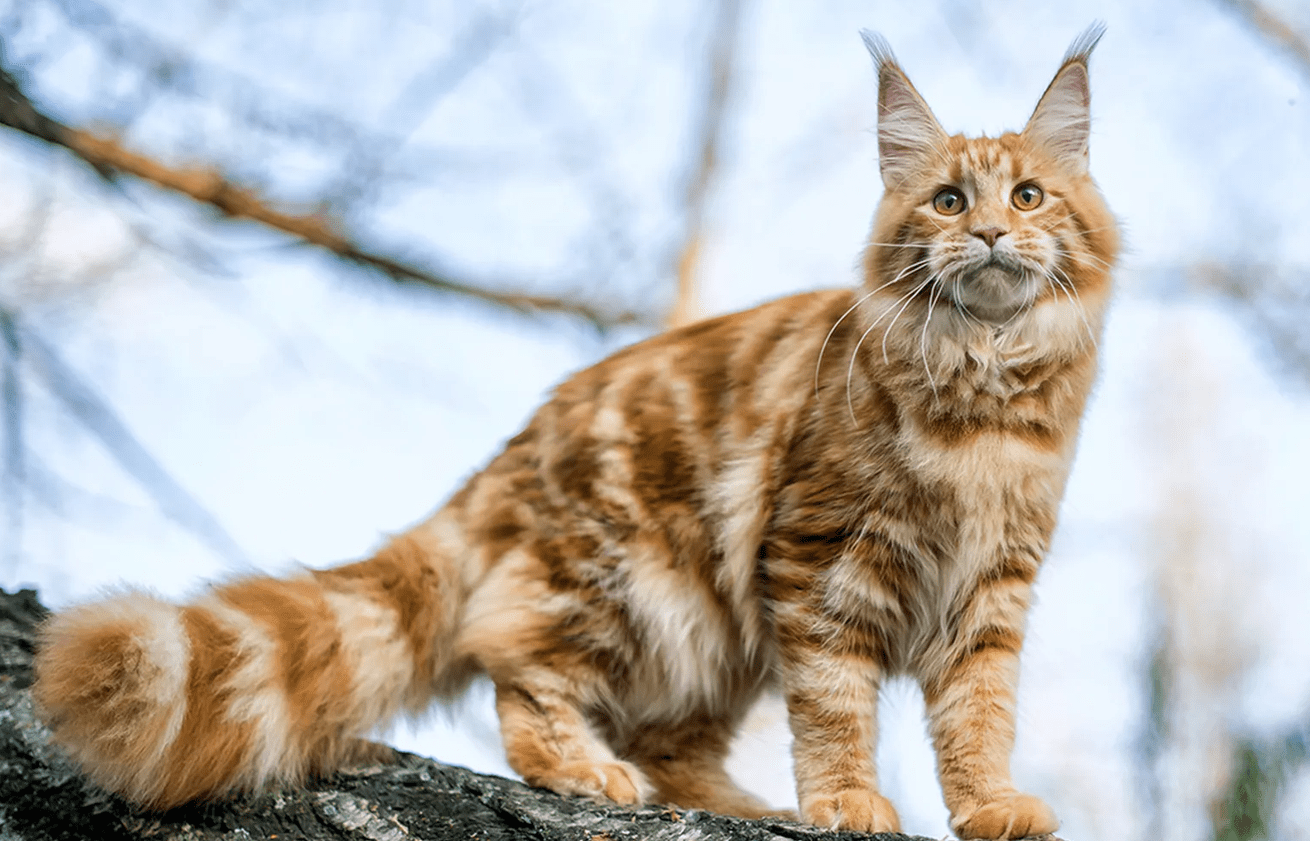
Maine Coon joint pain is a manageable condition with the right approach, but it requires vigilance, early intervention, and a tailored care plan. By recognizing signs like reduced mobility or behavioral changes, understanding causes such as osteoarthritis or hip dysplasia, and exploring relief options like medications, supplements, and environmental modifications, you can significantly improve your Maine Coon’s comfort and mobility. Preventive measures, such as weight management and regular vet checkups, further protect their joint health over time.
With this comprehensive guide, you’re equipped to support your Maine Coon through joint pain, ensuring they continue to enjoy their playful, affectionate nature for years to come. Consult your veterinarian to create a personalized plan, and give your gentle giant the care they deserve.

